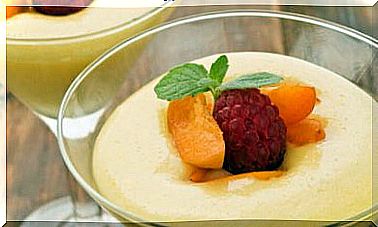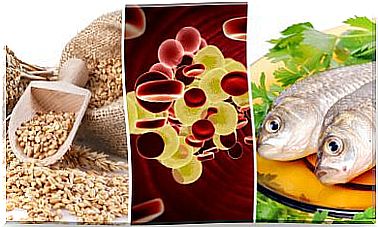10 Foods Of The Mediterranean Diet That You Will Like To Eat
The Mediterranean diet is a model of healthy and balanced nutrition whose foods are very suitable to take care of cardiovascular health and promote general well-being.
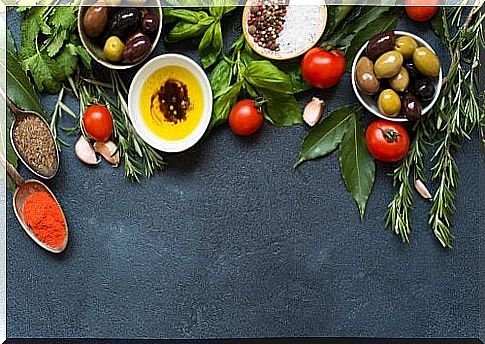
Knowing the foods of the Mediterranean diet is a simple way to start eating better without adopting strict or dangerous diets. Unlike any miracle diet, this eating model proposes an adequate balance of all the nutrient groups, respecting the food pyramid.
In recent years it has gained a lot of fame, not only for its ability to help control weight, but for the contributions it makes to health. Without being pretentious or extreme, the true contribution of the Mediterranean diet is that it involves a combination of foods that, thanks to their nutrients, help the body in different ways.
However, it is important that it is always combined with daily exercise and good habits aimed at a healthy life. In addition, we cannot ignore the importance of visiting the nutritionist, as he or she will determine whether it is convenient for us to follow this type of diet.
Mediterranean diet foods to eat healthier
According to experts, following the Mediterranean diet can lead to more stable blood sugar levels, lower cholesterol and triglycerides, and a lower risk of developing heart disease and other health problems. What are the foods you recommend?
1. Olive oil
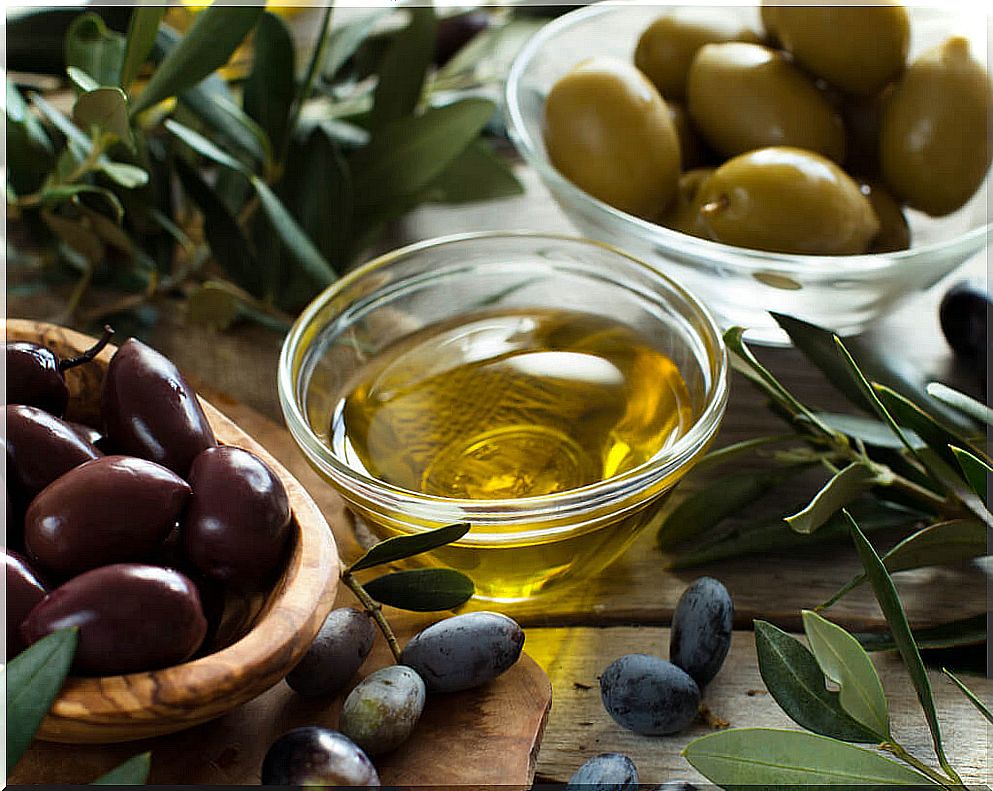
Known as the protagonist of Mediterranean cuisine, olive oil is one of the healthiest foods for the diet. Due to its content of healthy fats, it is an ally to clean the arteries and reduce high cholesterol levels.
In fact, as detailed in a study published in Public Health Nutrition , the regular intake of this food contributes to reducing cardiovascular risk thanks to its content of omega 3 series fatty acids.
2. Potatoes
Despite their carbohydrate content, potatoes are foods of the Mediterranean diet with important benefits. They contain essential vitamins, fiber and minerals that, according to a publication in the Journal of the Science of Food and Agriculture , could help fight inflammation and metabolic problems such as diabetes.
- Reduce your consumption of flour and increase that of potatoes, which provide you with much healthier carbohydrates, without refining.
3. Feta cheese
Feta cheese is a food that is obtained from the fermentation of goat’s milk with chymosin. Although its taste differs from traditional cheese, it is a source of high-quality proteins that are important to the diet.
According to a study published in Goat Science , the nutrients contained in goat milk and its derivatives help promote health and have potential as an adjuvant against various diseases, although more evidence is still required to prove it.
- This cheese goes very well in salads and recipes with vegetables.
4. Chickpeas
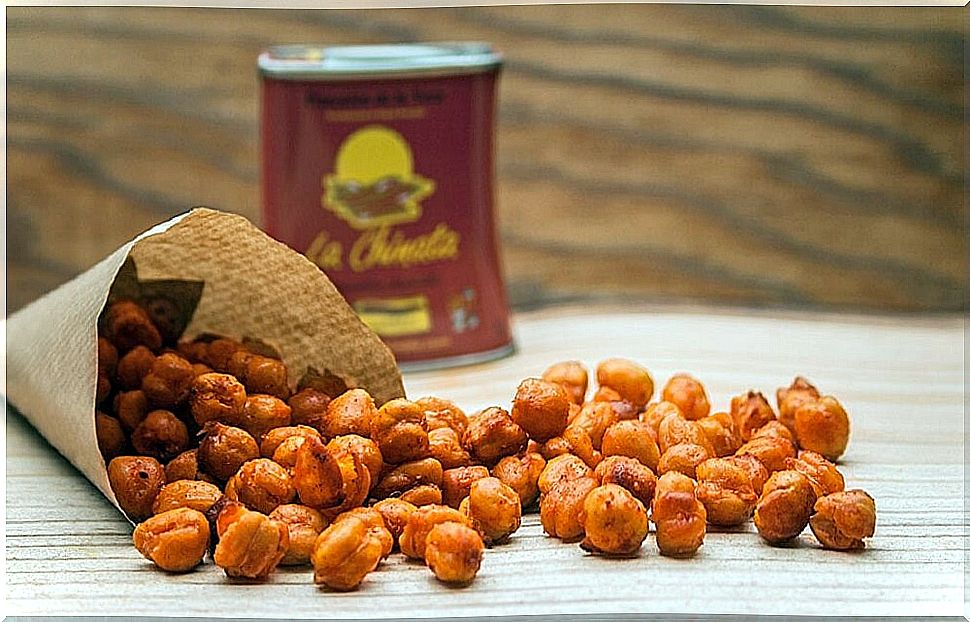
Chickpeas are popular for their supply of unsaturated fats and protein, which support cardiovascular health and weight. In addition, they represent a healthy source of energy.
- In Mediterranean cuisine, chickpeas are eaten dry, salty and as a snack. Of course, they are also prepared in soups, salads and other healthy recipes.
5. Lemons
Lemon juice is one of the foods in the Mediterranean diet that everyone prefers to eat on a daily basis. Not only is it very versatile when it comes to cooking, it also contains essential antioxidants and minerals that help protect health.
Thanks to its vitamin C content, it helps to strengthen the immune system and helps prevent the development of infections, as suggested by some studies that have been carried out.
- Make your own lemonades or use the lemon to dress your dishes.
6. Blueberries
They are distinguished by being a significant source of antioxidants, which, according to research, help to inhibit the effects of free radicals in the environment. They are also good for urinary health, as they serve as adjuvants against infections such as cystitis.
- Fresh and frozen blueberries can be added to your regular diet in multiple ways. Due to their delicious flavor, they go very well in smoothies, natural juices, salads and desserts.
7. Broccoli
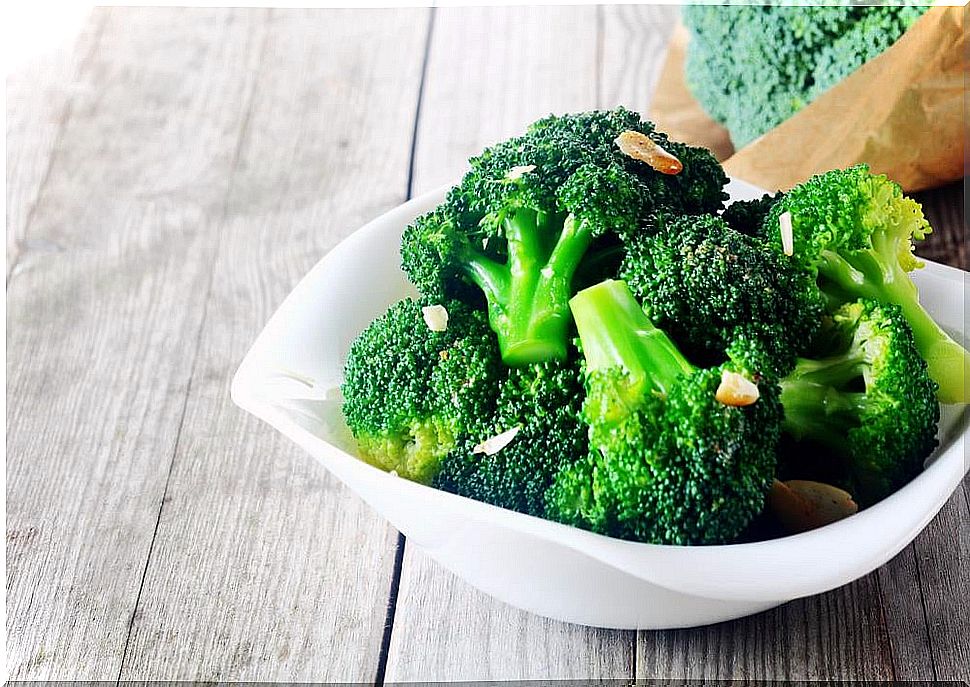
Although many people prefer to avoid them because they cause flatulence, broccoli is one of the healthiest foods. In exchange for very few calories, it provides doses of vitamin C, calcium, magnesium and folic acid.
These nutrients help to strengthen the defenses and contribute to increase the presence of antibodies to fight pathogens. In turn, they promote the activity of the nervous system and help improve cognitive health, according to the North Carolina Department of Agriculture and Consumer Services Food and Drug Protection Division.
- We recommend not overcooking the broccoli so that it maintains its properties as much as possible.
8. Spinach
Due to its high iron content, spinach favors the formation of red blood cells in case of anemia. Also, as detailed by research in Food & Function , it is a source of phytochemicals and bioactive compounds that help combat oxidative stress and increase defenses.
- They can be consumed stewed, in salads or in green juices and smoothies.
9. Whole grains
Oats, rye, wheat, and other varieties of whole grains have a special place as foods in the Mediterranean diet. This is because they are a source of complex carbohydrates, necessary for energy and improve metabolism.
- Experiment with cereals you don’t know about. The quinoa? The millet? Buckwheat?
10. Avocado
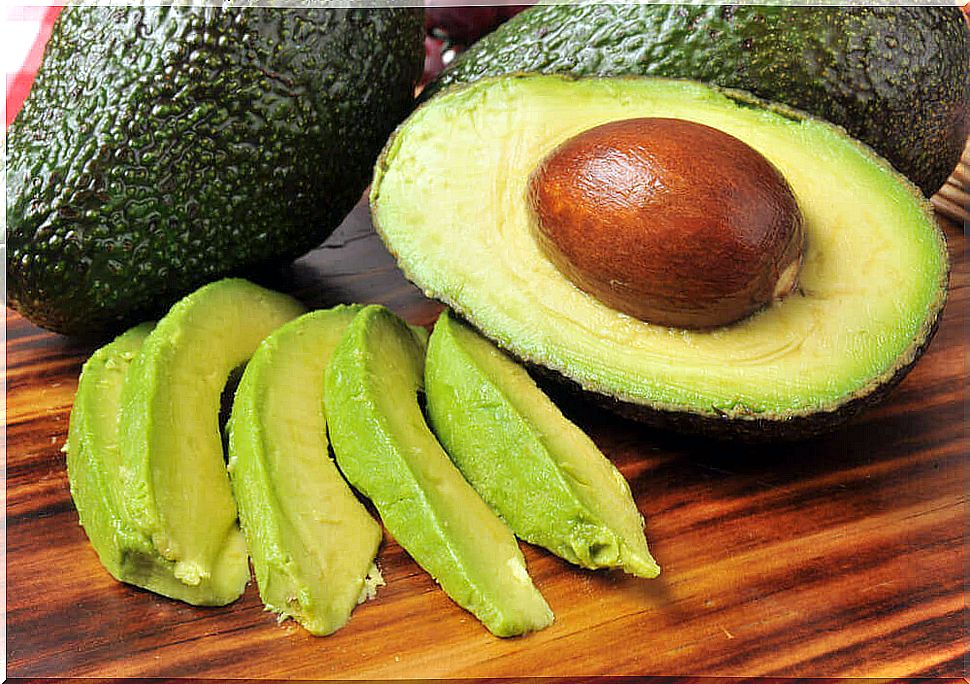
Without a doubt, avocado is one of the most popular foods in any diet plan. This delicious fruit contains healthy fatty acids, vitamin E, and proteins that, according to evidence, participate in vital functions such as heart function and circulation.
- The creaminess of the avocado makes it possible to prepare very healthy vegetarian pates and creams.
Include healthy foods in the diet to increase its quality
How regularly do you eat these foods? If you still do not incorporate them into your regular diet, start consuming them now. As you can see, they are low-calorie alternatives to improve the way you eat without being restrictive.
